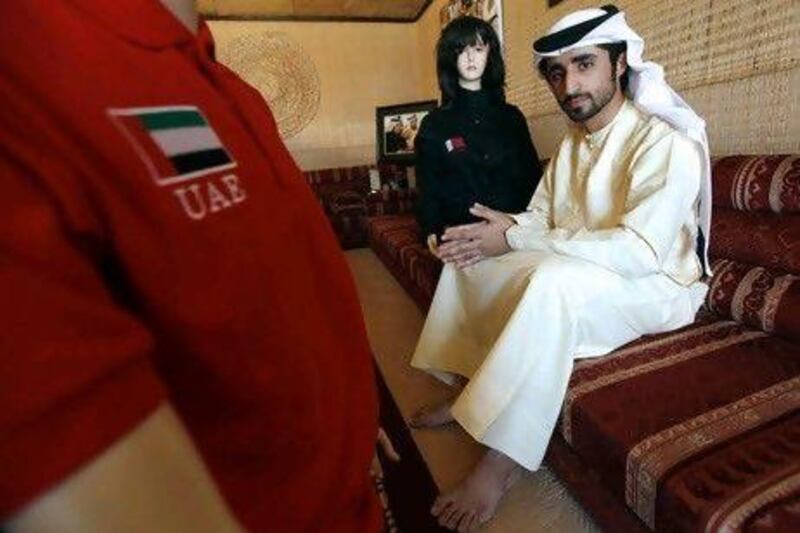In 1971, before he became one of the UK's most famous entrepreneurs, Richard Branson was arrested and charged with tax evasion.
Mr Branson was bailed out by his mother, who remortgaged her house to pay for the tax and a fine levied by the government.
Anecdotes such as this are often presented in the autobiographies of successful entrepreneurs; not the part about tax evasion, but the cash handout from a friend or family member.
Many entrepreneurs have to call on those closest to them to inject cash into their business, whether it is seed money or a cushion for when the business falls on hard times.
Suhail al Falasi, 18, an Emirati entrepreneur from Dubai, was no different. Mr al Falasi borrowed Dh6,000 (US$1,633) from his father last year to start his polo shirt business, called Al Shindagha. The young entrepreneur went a step further and sought the expertise of a family friend in branding, marketing and selling his product.
With the help of Nawwar Nashwati, the managing director of Wuzoon Media & Advertising, Mr al Falasi wants to take his UAE- branded clothing range overseas.
"This is all about payback for me," Mr Nashwati says. "I had family and friends help me when I started out. You need that support."
Nurturing entrepreneurial talent from a young age is gaining steam in the Middle East through groups such as the Young Arab Leaders, Injaz and The Big Start, a competition sponsored by Al Tamimi Investments (ATI). But help from friends and family is still a common avenue to starting a business.
Experts, however, advise entrepreneurs to be wary of the help they receive from family and friends, particularly when it comes to borrowing money.
Stephen Mezias, a professor of entrepreneurship and family business at Insead, says it is harder to be explicit in your needs and demands with family or a friend.
"There's all kind of wisdom that says don't borrow from your family and friends," Mr Mezias says. "Entrepreneurs need to make clear that they will pay the money back or what the actual agreement is - a loan or a gift."
Mr al Falasi won an award last year for the best designed stall at the Young Entrepreneur Competition, organised by the Mohammed Bin Rashid Establishment for SME Development. Wuzoon helped to design and brand his stall and the shirts he was selling.
Mr Nashwati says he is happy to work for Mr al Falasi for free until he no longer requires the help on a regular basis.
The young entrepreneur and the consultants at Wuzoon are negotiating with the up-market Harrods and Clarence House in London to sell the polo shirts.
"We are trying to convince them that if they were to order 1,000 shirts with Suhail, he could deliver them on time and budget," Mr Nashwati says.
Having originally branded the polo shirts with the UAE flag, Mr al Falasi says Harrods has asked if he can provide Qatari versions to reflect the nationality of the store's new owners.
"It's a business that's clearly Emirati but I want to develop a high-quality brand for the younger generation throughout the Middle East," he says.
The entrepreneur uses only UAE-made shirts for his designs, paying about 50 per cent more than if he were to buy them from overseas.
But Mr al Falasi is certainly saving in consultancy fees, having racked up hours with Wuzoon for which the agency would usually charge Dh100,000.
"Suhail can definitely take this business further," Mr Nashwati says. "He is a talented young Emirati who wants to be challenged."






